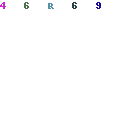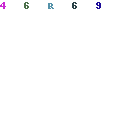Schwab spoke eloquently about a dangerous Nietzsche
“What do Neitzsche, James Dean, Baudelaire [and] Jim Morrison have in common? — All of them are surrounded by an aura of rebellion and all of them seem to document in their lives the trajectory of intense rebellion and premature catastrophic end” said Professor Martin Schwab.
“No wonder the image of the comet comes up when you think Nietzsche, of the one who goes up, shines and goes under, demise. ‘I go down to my demise’ says Zarathustra, at the end of Nietzsche’s main work, Zarathustra.”
“This Nietzsche has been attractive particularly to young minds who discover their own rebellion in him or who use him as a foil for their own rebellion.”
So began the keynote address for Fifth Annual Philosophy Undergraduate Conference this weekend, sponsored by the Department of Philosophy.
The weekend event opened with a welcome from Provost Paul Ferguson and quickly dove into the philosophical depths.  To a standing room only crowd, the first three presenters began on a slightly dark note: death and fear. They read and explained their papers. After the readings, Nathan Dell, SIUE discussant and Lincoln Laureate, led a discussion.
To a standing room only crowd, the first three presenters began on a slightly dark note: death and fear. They read and explained their papers. After the readings, Nathan Dell, SIUE discussant and Lincoln Laureate, led a discussion.
The presenters were peppered with a range of questions, from other presenters, SIUE faculty and the evening’s keynote speaker. The presenters effectively answered the questions posed to them, displaying comprehensive knowledge about their subjects and a gamut of other philosophy topics.
The first session was a mere preview of the presenters to follow. The undergraduate speakers throughout the event showed their interest, intelligence and passion for philosophy.
Professor Martin Schwab from the University of California, Irvine, the keynote speaker, also spoke to a capacity crowd. He spoke about his paper, “Why Nietzsche is Useful and Dangerous for Us Today.” Schwab offered examples of how holding Nietzsche too high is a tempting idea in today’s society. The audience was composed of students, presenters and SIUE students, and faculty. The crowd listened with rapt attention throughout the hour long presentation.
Schwab then answered questions for an hour. The audience challenged him with questions that he skillfully applied his knowledge of Nietzsche to answer. Many of the questions came from the student presenters. Schwab offered praise to the questioners for the depth and breadth of the questions. Many in the audience seemed loathe to let the evening end.
The event continued into Saturday, with more speakers and a continued strong audience. The topics ranged from music (‘Thoughts on the Aesthetics of Melody and on Philosophical Concepts in the Nature of Opera’ and ‘Musical Style as a Function of Philosophy’) to crime (‘Punishing Crime in a World Without Free Will’ and ‘Dealing with the Existing Gap Between Criminal Law and Moral Institutions’).

Presenters with the keynote speaker from the 5th annual Undergraduate Philosophy Conference at SIUE. (front, l-r) Andrea Gammon, Sean Colonna, Ashley Fleshman, Diana Wang, Dep't Chair Sue Cataldi, Krista Wiley. (back) Kevin Lepore, keynote speaker Dr. Martin Schwab, Nathan Dell, Larry Busk, William Noble, Ryan Comeau, non-presenter, and Daniel Weissglass.
Filed Under: Happenings • Philosophy













